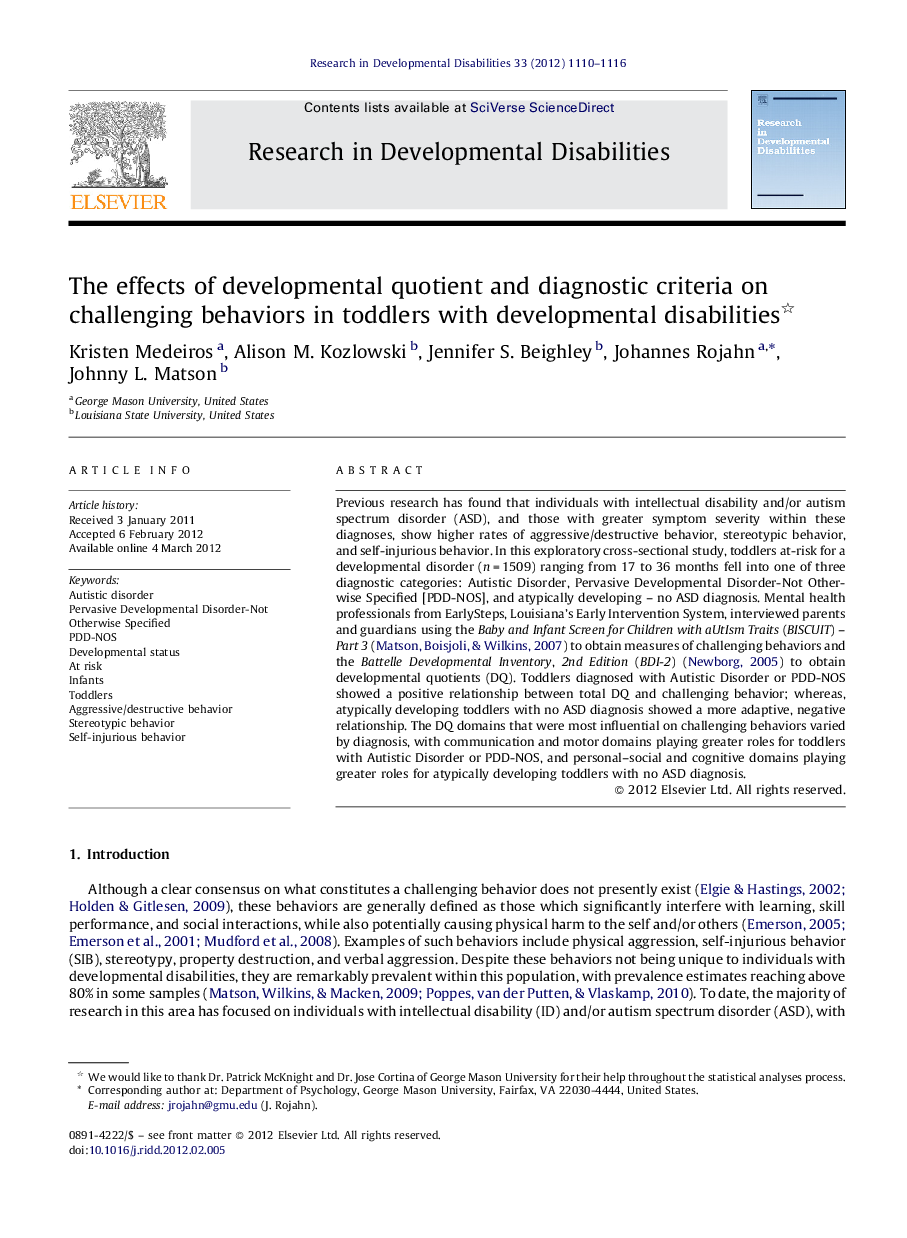| Article ID | Journal | Published Year | Pages | File Type |
|---|---|---|---|---|
| 371586 | Research in Developmental Disabilities | 2012 | 7 Pages |
Previous research has found that individuals with intellectual disability and/or autism spectrum disorder (ASD), and those with greater symptom severity within these diagnoses, show higher rates of aggressive/destructive behavior, stereotypic behavior, and self-injurious behavior. In this exploratory cross-sectional study, toddlers at-risk for a developmental disorder (n = 1509) ranging from 17 to 36 months fell into one of three diagnostic categories: Autistic Disorder, Pervasive Developmental Disorder-Not Otherwise Specified [PDD-NOS], and atypically developing – no ASD diagnosis. Mental health professionals from EarlySteps, Louisiana's Early Intervention System, interviewed parents and guardians using the Baby and Infant Screen for Children with aUtIsm Traits (BISCUIT) – Part 3 ( Matson, Boisjoli, & Wilkins, 2007) to obtain measures of challenging behaviors and the Battelle Developmental Inventory, 2nd Edition (BDI-2) ( Newborg, 2005) to obtain developmental quotients (DQ). Toddlers diagnosed with Autistic Disorder or PDD-NOS showed a positive relationship between total DQ and challenging behavior; whereas, atypically developing toddlers with no ASD diagnosis showed a more adaptive, negative relationship. The DQ domains that were most influential on challenging behaviors varied by diagnosis, with communication and motor domains playing greater roles for toddlers with Autistic Disorder or PDD-NOS, and personal–social and cognitive domains playing greater roles for atypically developing toddlers with no ASD diagnosis.
► Autism showed a positive relationship between developmental quotients (DQ) and challenging behavior (CB). ► DQ influence on CB varied by diagnosis. ► These interactions between DQ, CB, and diagnosis emerge very early in life.
